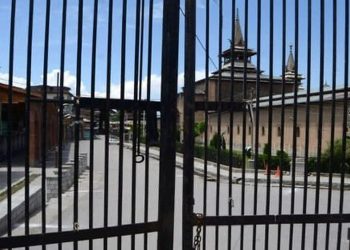KABUL: The Taliban said on Tuesday Afghan girls will be allowed to return to school “as soon as possible”, after facing international fury over their effective exclusion of women and girls from education and work.
Taliban spokesman announced the remaining members of Afghanistan’s all-male government, weeks after the militants seized Kabul in an offensive that shocked the world.
“The work is continuing over the issues of education and work of women and girls,” Taliban spokesman Zabihullah Mujahid said at a press conference, saying schools will reopen “as soon as possible”, without providing a timeframe.
“More time is needed… instructions on how to deal with their work, their services and their education are needed because the system has changed and an Islamic system is in place.”
During the weekend, girls and female teachers were excluded from returning to secondary school, while boys and male teachers were ordered back to the classroom.
The Taliban have also slashed women’s access to work, with officials previously telling them to stay at home for their own security until segregation under the group’s restrictive interpretation of sharia law can be implemented.
The group said progress in women’s rights will be respected “within the framework of Islamic law”. Many women however are deeply suspicious about the Taliban’s pledges.
New additions to the Taliban’s government were also announced on Tuesday, with businessmen and engineers added to the line-up, as well as a doctor appointed as health minister. The Taliban had promised an inclusive administration, but no women were added on Tuesday, and it remains largely drawn from loyalist ranks.
A member of the Hazara community, which is majority Shite and has long been persecuted by the Taliban joined the health ministry as a deputy minister.
Afghan women have fought for and gained basic rights in the past 20 years, becoming lawmakers, judges, pilots and police officers, though mostly limited to large cities.
There was no mention in the press conference of the recently shut down women’s affairs ministry, with its offices replaced with a department notorious for enforcing strict religious doctrine during the Taliban’s last rule.
Women have been at the forefront of several small, scattered protests across the country demanding to be included in public life. The Taliban have attempted to shut them down, slapping rules on any form of assembly.
The Taliban now face the colossal task of transitioning from insurgent force to ruling Afghanistan, an aid-dependent country whose economic troubles have only deepened since they seized power and outside funding was frozen. Many government employees have not been paid for months, with food prices soaring.


































